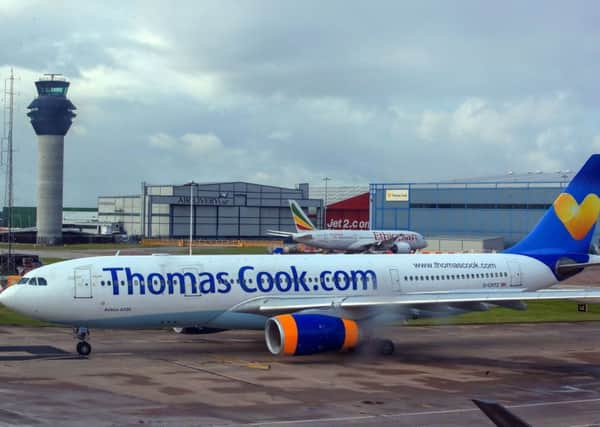On Thomas Cook’s epic fall to earth


A global business, which was in need of a £1.6 billion rescue package just ten days ago, is now closed and the collateral damage is immense.
Thomas Cook handled around 20 million customers each year. It operated 186 hotels. It owned 100 aircraft. It traded from 2,800 shops and employed 21,000 people worldwide, 9,000 of which were UK based. It is estimated that 485,000 customers were due to travel on Thomas Cook flights this week alone.
Advertisement
Hide AdAdvertisement
Hide AdFor the customers, there is some certainty. Those currently on holiday will at least get back home, as originally scheduled, though not without some disruption and anger at being approached to pay hotel bills - in a few instances. For those customers, with forward bookings, they will get redress, assuming they have ‘protected packages.’
For the 21,000 employees, their futures may look bleak now, but with the global tourism industry still growing, other opportunities will present themselves. That is not to diminish the awfulness of losing the job you love and that certainly seemed to be the case with so many of Thomas Cook’s employees. Indeed, financial considerations aside, Thomas Cook was a fantastic brand and its demise will hurt many people for years to come.
For those many countries, so dependent on tourism, the shockwaves will be profound. Spain’s Balearic Islands will be particularly badly hit.
Thomas Cook employed hundreds of people in Palma alone, not to mention the very many hotels spread throughout Majorca, Minorca and Ibiza.
Advertisement
Hide AdAdvertisement
Hide AdIt will take some time for other tour operators to fill the void, but at least time will be on their side in planning for the summer season 2020.
The irony is that Thomas Cook was not exactly on its knees - on paper that is.
Its business was growing, up £600 million to £9.6 billion in 2018. But its ability to operate profitably was slipping.
In May 2019, alarm bells began ringing, with influential investor groups warning that trading losses, along with crippling debts, were making the company’s value almost worthless.
Advertisement
Hide AdAdvertisement
Hide AdMoves to sell off the company’s successful airline division were recommended, but failed to materialise. It could have made a difference.
A £200 million government bailout would have been a sticking plaster remedy. In the end, the company wasn’t too big to fail. Maybe, it was too big to survive.